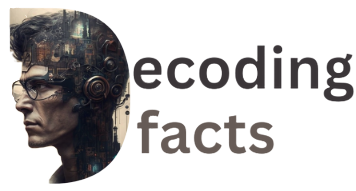Artificial intelligence (AI) has rapidly advanced in recent years, with the potential to transform many aspects of society. As AI continues to play an increasingly significant role in our lives, it is essential to consider the ethical implications of its development and use. AI ethics is a field that explores the moral and ethical considerations surrounding the creation and deployment of AI systems.
The importance of discussing AI ethics cannot be overstated. Without clear ethical guidelines, there is a risk that AI could cause harm to individuals and society as a whole. For example, AI systems that perpetuate bias or discrimination can result in unfair treatment of certain groups of people. Furthermore, the potential consequences of AI on employment, privacy, and security are significant, and require careful consideration. By discussing AI ethics, we can ensure that the development and deployment of AI technologies are aligned with our values and principles. In the following sections, we will explore why ethics is important in artificial intelligence, what AI ethics are, and how we can establish ethical guidelines for AI development and deployment.
What are AI ethics?
AI ethics refers to the moral and ethical considerations surrounding the creation, deployment, and use of AI systems. The field of AI ethics is still evolving, but it is generally guided by a set of principles that seek to ensure that AI systems are developed and used in ways that are aligned with our values and principles. Some of the core principles of AI ethics include transparency, accountability, fairness, safety, and privacy.

The historical context of AI ethics dates back to the development of the first AI systems in the mid-20th century. As AI technology advanced, researchers and scholars began to consider the potential ethical implications of AI. In the 1980s and 1990s, the field of computer ethics emerged, which explored the ethical considerations surrounding the use of computers and technology. However, it was not until the early 2000s that AI ethics became a distinct field of study.
Why is ethics important in artificial intelligence?
The development and use of AI systems have the potential to create significant benefits for individuals and society. However, there are also risks and challenges associated with AI. Therefore, it is essential to consider the ethical implications of AI development and use. Here are some reasons why ethics is important in artificial intelligence:
- Ensuring fairness and avoiding bias: AI systems are trained on vast amounts of data, and this data can reflect historical biases and inequalities. If not addressed, AI systems can perpetuate and amplify these biases. Ethical considerations require that AI developers ensure that their systems are fair and avoid bias.
- Promoting accountability and transparency: As AI systems become more complex, it can be challenging to understand how they make decisions. Ethical AI requires that the decision-making processes of AI systems are transparent, explainable, and accountable.
- Protecting privacy and security: AI systems can collect and process large amounts of personal data. Ethical considerations require that AI developers take measures to protect individual privacy and ensure data security.
- Addressing potential harm to society: AI systems can have significant societal impacts, such as changes to employment and the economy. Ethical considerations require that AI developers and stakeholders consider these potential impacts and take measures to mitigate any negative consequences.
Also Read : Mysteries of the Universe : A Journey Through the Great Observatories and Beyond
What are the 5 ethics in artificial intelligence?
There are five core principles of AI ethics that guide the development and use of AI systems. These principles are:
- Fairness: Ensuring that AI systems are designed to be fair to all individuals and groups. This includes addressing any biases that may be present in the data used to train AI systems.
- Transparency: Ensuring that the decision-making processes of AI systems are transparent and explainable. This allows individuals to understand how AI systems arrive at their decisions.
- Accountability: Ensuring that AI systems are accountable for their actions. This includes identifying who is responsible for any harm caused by AI systems.
- Safety: Ensuring that AI systems do not cause harm to individuals or society. This includes identifying potential risks and taking steps to mitigate them.
- Privacy: Ensuring that AI systems protect individual privacy and data security. This includes identifying and protecting personal data that may be collected and processed by AI systems.
Each of these principles is critical in ensuring that AI systems are designed and used in ways that are consistent with our values and principles.
Here are some examples of how each principle can be put into practise:
Fairness: AI systems can be trained to eliminate any biases that may exist in job descriptions or candidate data when it comes to hiring. This ensures that all candidates are evaluated solely on their qualifications.
Transparency: AI systems in loan approval can be designed to explain how they arrived at a particular decision. This enables individuals to understand why they were approved or denied and allows them to appeal the decision.
Accountability: In autonomous vehicles, AI systems can be designed to identify who is responsible in the event of an accident. This helps ensure that individuals are held accountable for any harm caused by the vehicle.
Safety: In medical diagnosis, AI systems can be designed to identify potential risks or errors in diagnosis. This helps ensure that patients receive the correct treatment and reduces the risk of harm.
Privacy: In online advertising, AI systems can be designed to protect individual privacy by ensuring that personal data is not shared with third parties without explicit consent.
Fairness, transparency, accountability, safety, and privacy are the five core principles of AI ethics. Each of these principles is critical in ensuring that AI systems are designed and used in ways that are consistent with ethical principles and values. The practical importance of AI ethics is demonstrated by examples of how each principle can be applied in practise.
Ethical issues in AI
As AI systems become more widespread and integrated into our lives, there are a number of ethical issues that must be considered. Some of these issues include:
- Bias in AI algorithms: AI systems are only as unbiased as the data they are trained on. If the data contains biases or inaccuracies, the AI system will reproduce those biases in its decision-making. This can have serious consequences in areas such as hiring, lending, and criminal justice.
- The potential impact of AI on employment: As AI systems become more advanced, there is concern that they may replace human workers in certain industries, leading to job loss and economic instability. It is important to consider how AI can be used in ways that benefit both individuals and society as a whole.
- Ethical responsibilities of companies that develop and use AI: Companies that develop and use AI systems have an ethical responsibility to ensure that those systems are developed and used in ways that are consistent with ethical principles and values. This includes considering the potential impact of AI on society and taking steps to mitigate any negative consequences.
It is essential that these issues are addressed in a thoughtful and responsible manner to ensure that the development and use of AI systems align with ethical principles and values. This will help ensure that AI is used in ways that benefit individuals and society as a whole, while also avoiding potential harm.
Establishing AI ethics
Establishing AI ethics is an ongoing process that requires collaboration among a variety of stakeholders. Here are some ways that AI ethics can be established:
- Establishing principles for AI ethics: Principles for ethical AI can be established through collaboration among academics, industry leaders, policymakers, and other stakeholders. These principles can guide the development and use of AI systems, and ensure that they align with ethical values.
- Ethical AI organizations: There are a number of organizations that are dedicated to promoting ethical AI, such as the Partnership on AI, the IEEE Global Initiative on Ethics of Autonomous and Intelligent Systems, and the AI Now Institute. These organizations work to develop ethical guidelines and promote responsible AI development and deployment.
- Responsible AI development and deployment: Companies that develop and use AI systems have a responsibility to ensure that those systems are developed and used in ways that align with ethical principles and values. This includes considering the potential impact of AI on society and taking steps to mitigate any negative consequences.
- Collaboration among stakeholders: Establishing ethical AI requires collaboration among a variety of stakeholders, including academics, industry leaders, policymakers, and the public. By working together, these stakeholders can ensure that AI is developed and used in ways that benefit individuals and society as a whole.
In conclusion, establishing AI ethics is a complex and ongoing process that requires collaboration among a variety of stakeholders. By working together and taking a thoughtful and responsible approach, we can ensure that AI is developed and used in ways that align with ethical principles and values, and that benefit individuals and society as a whole.
Conclusion
Finally, AI ethics is a critical topic that must be addressed in the development and deployment of AI technologies. It is critical to ensure that AI systems are developed and used in ways that are consistent with ethical principles and values and benefit both individuals and society as a whole.
We have looked at the definition and importance of AI ethics, the five core principles of AI ethics, ethical issues in AI, and ways to establish AI ethics in this article. It is obvious that establishing AI ethics will necessitate collaboration among a wide range of stakeholders, including academics, industry leaders, policymakers, and the general public.
As we continue to develop and deploy AI technologies, we must prioritise AI ethics to ensure that these technologies are used in ways that are consistent with our values and benefit society. We must collaborate to develop ethical guidelines and promote responsible AI development and deployment.
We can ensure that AI systems are developed and used in ways that benefit individuals and society as a whole while avoiding potential harm by prioritising AI ethics. Let us continue to work towards establishing AI ethics and promoting responsible AI development and use.
